Friendships, four-day-weeks, and financial finagling - reflections and changes in a cost-of-living crisis
Welcome to the latest Health, Wealth & Happiness report and what is, inevitably, more bad news than good.
But after several years reporting all-time lows, we’re determined to find nuggets of good and there is joy in the ways Brits have saved money this last 12 months.
It’s also reassuring to see happiness on the ups in demographics beaten down during the pandemic, and the economists at Cebr are very quietly optimistic we’ve turned a corner in wealth. Fingers crossed.
So we invite you to read the 2023 Health, Wealth & Happiness report. See the insights, process the data, and find out more about Friendonomics, four-day-weeks, the realities of remote working and so much more.
2023 Health, Wealth & Happiness Report headlines
Click the buttons for a snapshot of the latest headlines in health, wealth and happiness.
This year's report focuses on friendships, finances and the four-day working week.

The combined Health, Wealth & Happiness Index averaged 77.6 for the year, considerably down from 87.0 in 2021 / 22. Although 2023 has brought flickers of optimism in the Wealth and Happiness domains, the current score of 75.5 for Q1 2023 is firmly down on historic averages.
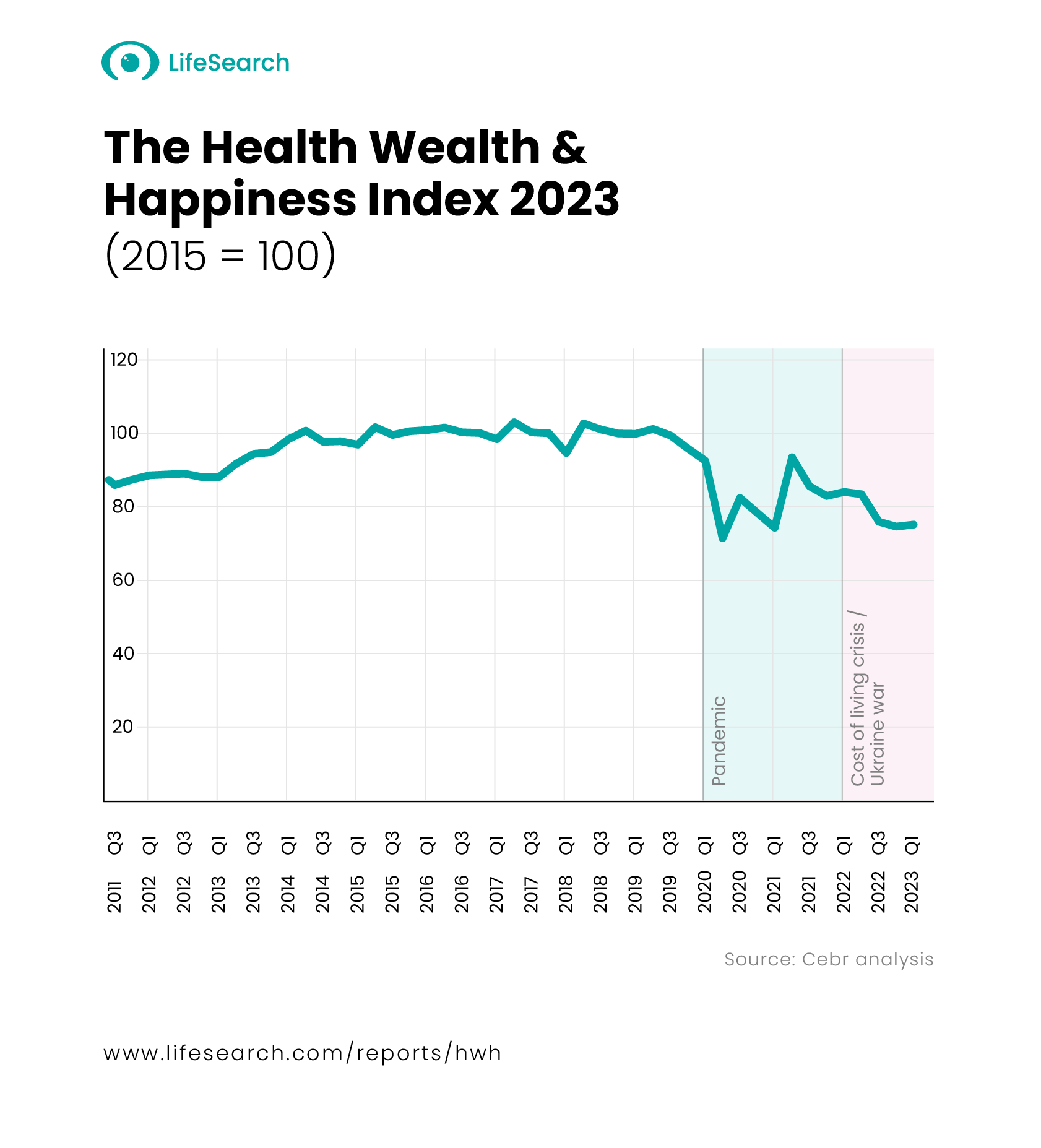
Britain’s mental wellbeing – and its decline – correlates with the cost-of-living crisis. But it cuts both ways, and an upturn in the economic situation (which Cebr are quietly optimistic about) will most likely pull up the nation’s happiness and mental wellbeing too. Fingers crossed.
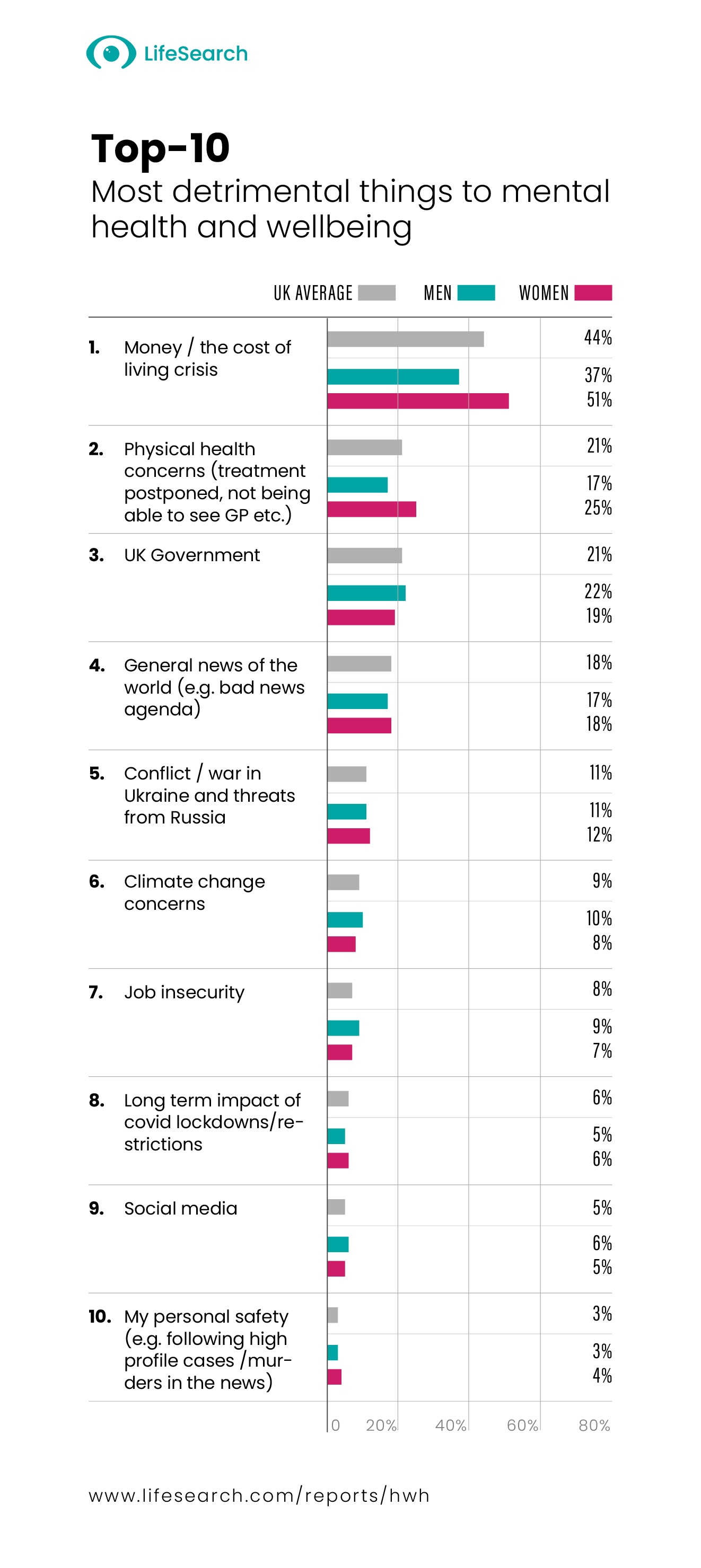
We see here in pounds and pence how much UK households expect to be down each month on average. It’s interesting that 18-34-year-olds are set to be worst off (£366) but they’re most likely to feel okay about it. The reverse is true for 55-and-overs who reckon they’ll be down much less (£141) but feel worse off than other age groups.
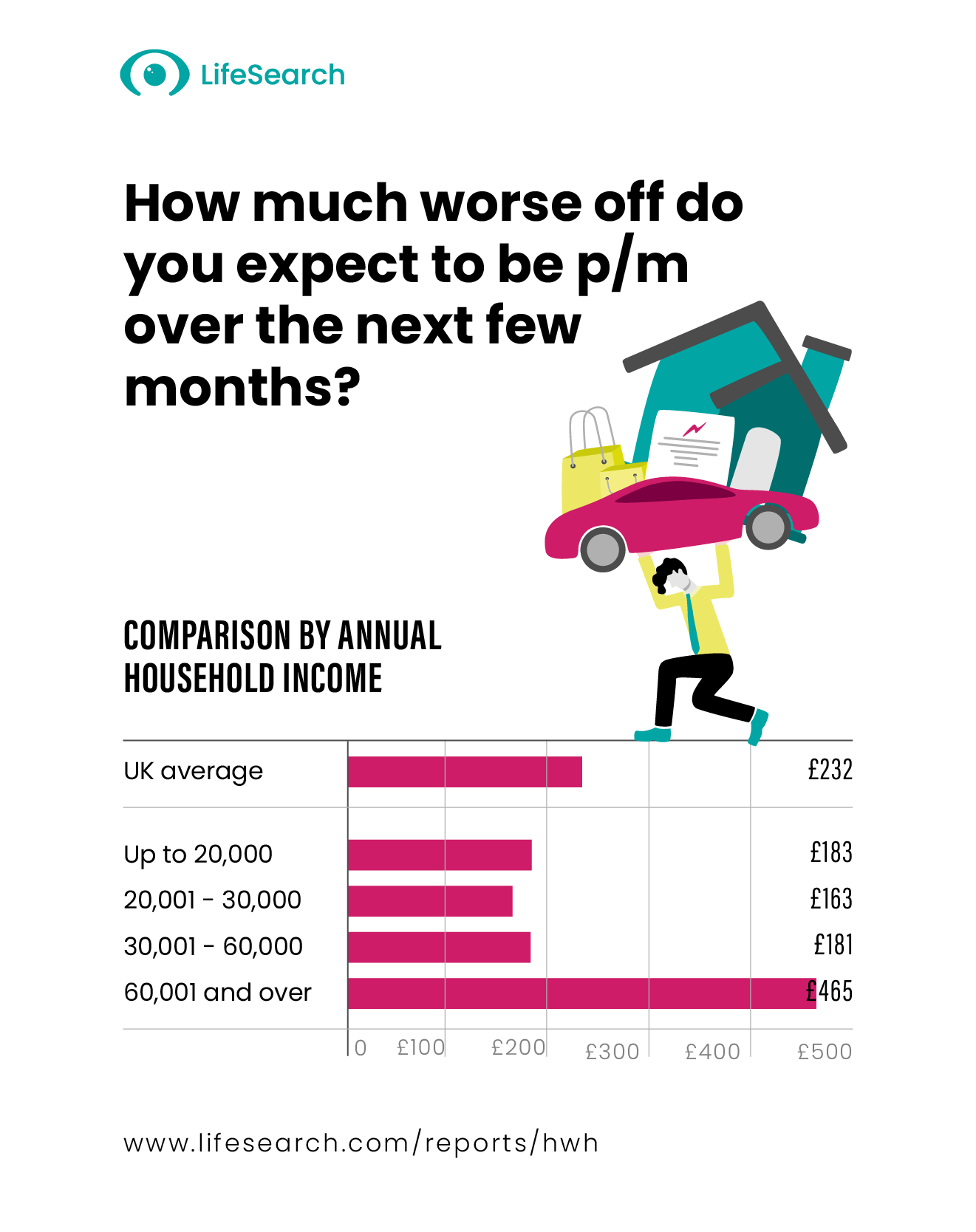
Some areas of this year’s report are worth a smile. As well as changing how we cook, travel, work and shop, Britons, especially in the younger demographics, have leapt into life’s grey areas to cut costs and better make ends meet.
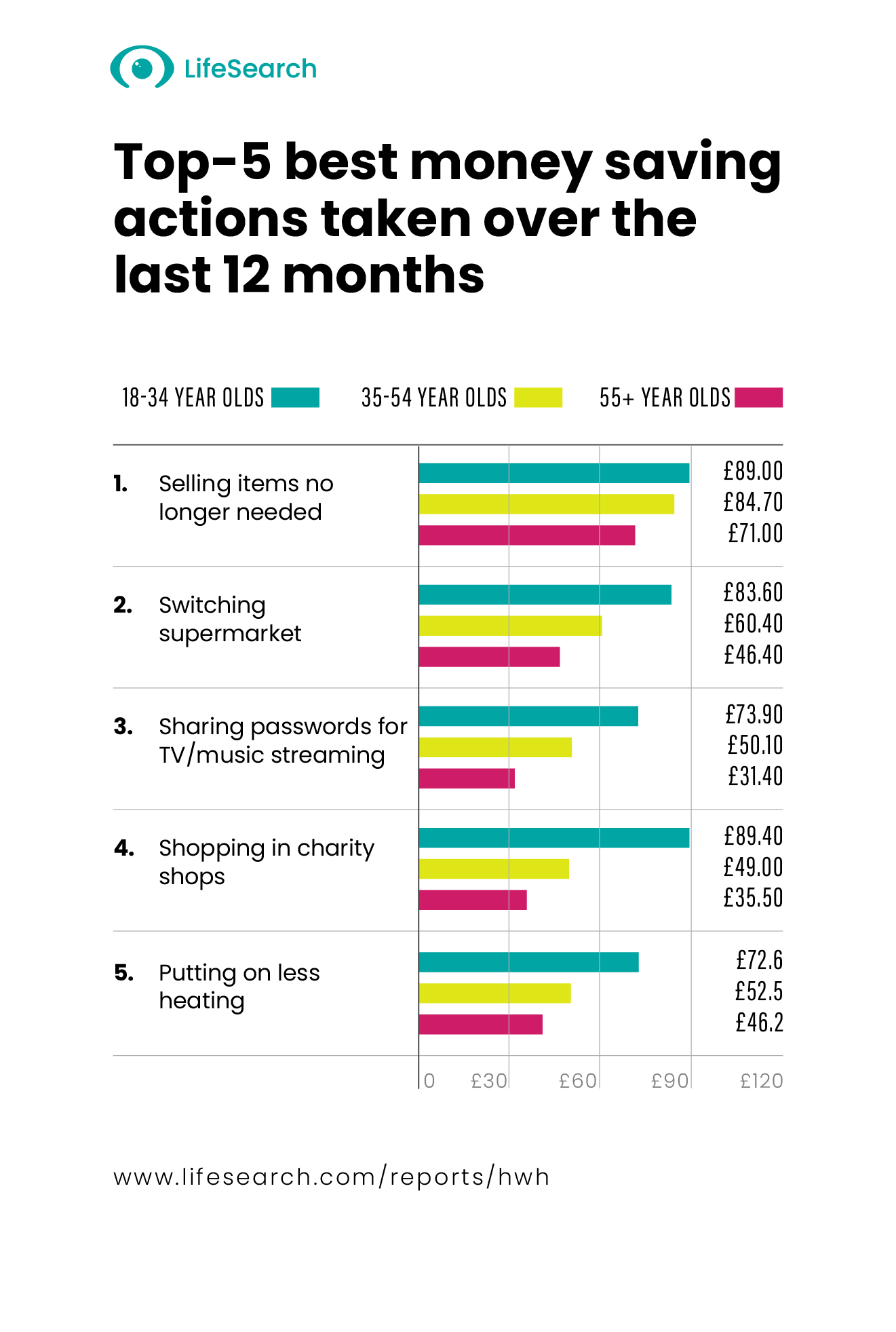
We saw small increases in happiness, now versus 12 months ago, in pockets of the UK. Wales and Scotland look especially optimistic. It’s also heartening to see increases in happiness for young people (18-34), women and ethnic minorities - three demographics that suffered particularly during the pandemic.
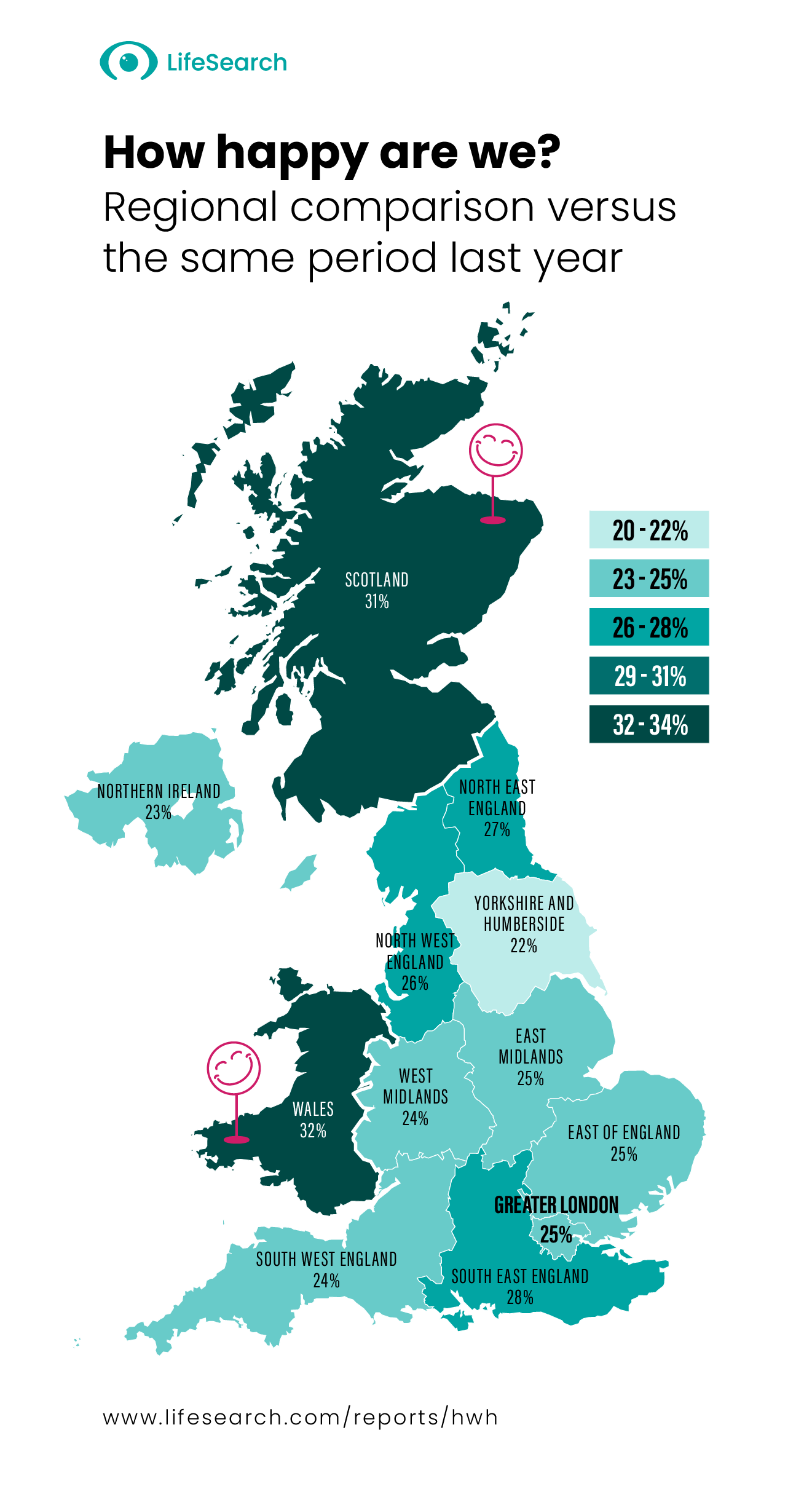
Should a four-day work week become the norm, we asked Britons what they’d do with the extra time. It’s interesting to note differences by age, but also by location: Scots like the idea of a side hustle (17%), in Yorkshire it’s all about chores (31%), and the North West wants to catch up on its sleep (23%). For Londoners it’s just more TV time (24%).
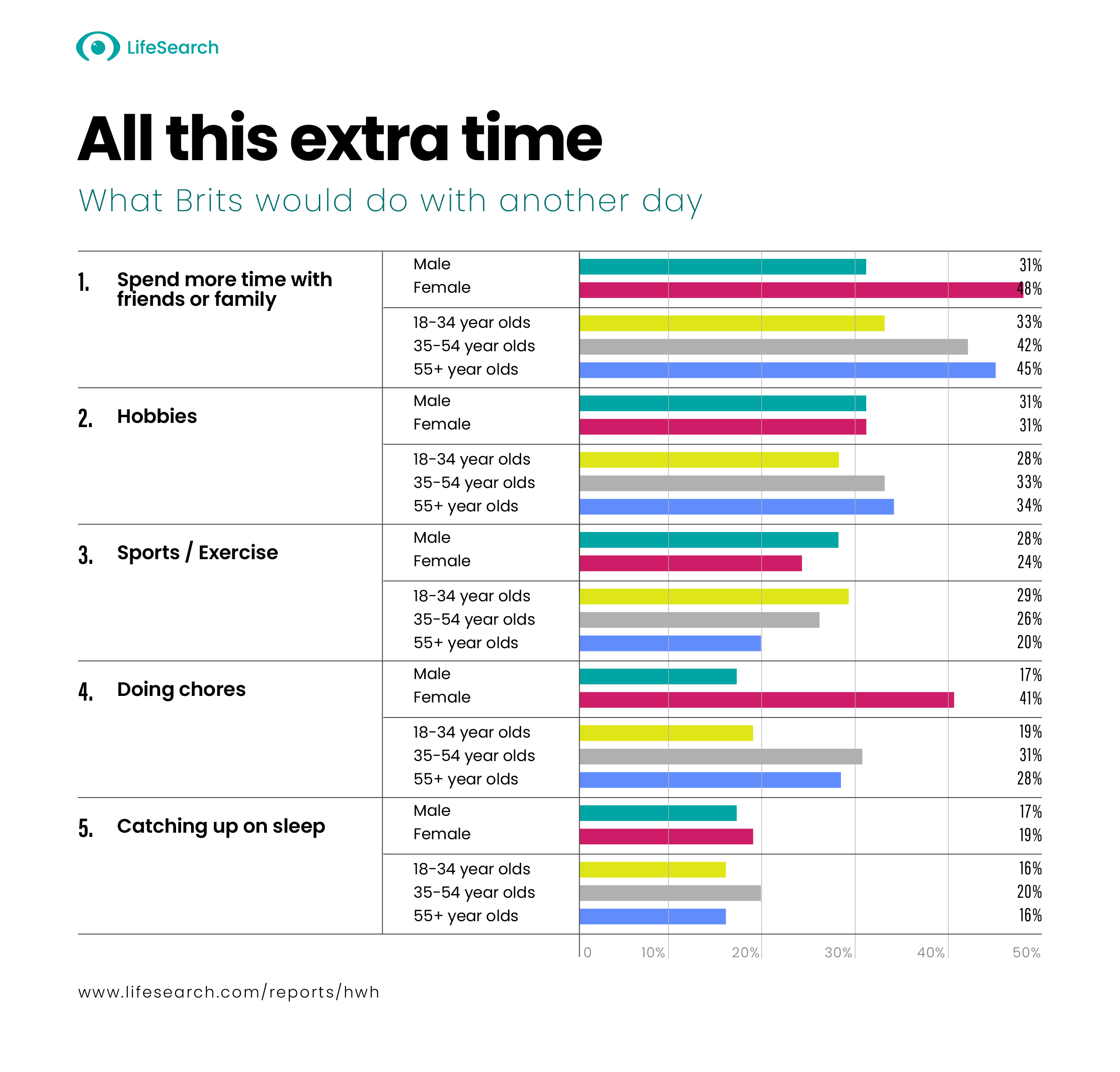
Read the previous Health, Wealth & Happiness reports
2017 | 2018 | 2019 | 2020/2021 Q1 | May 2022 | November 2022
LifeSearch is recommended by














